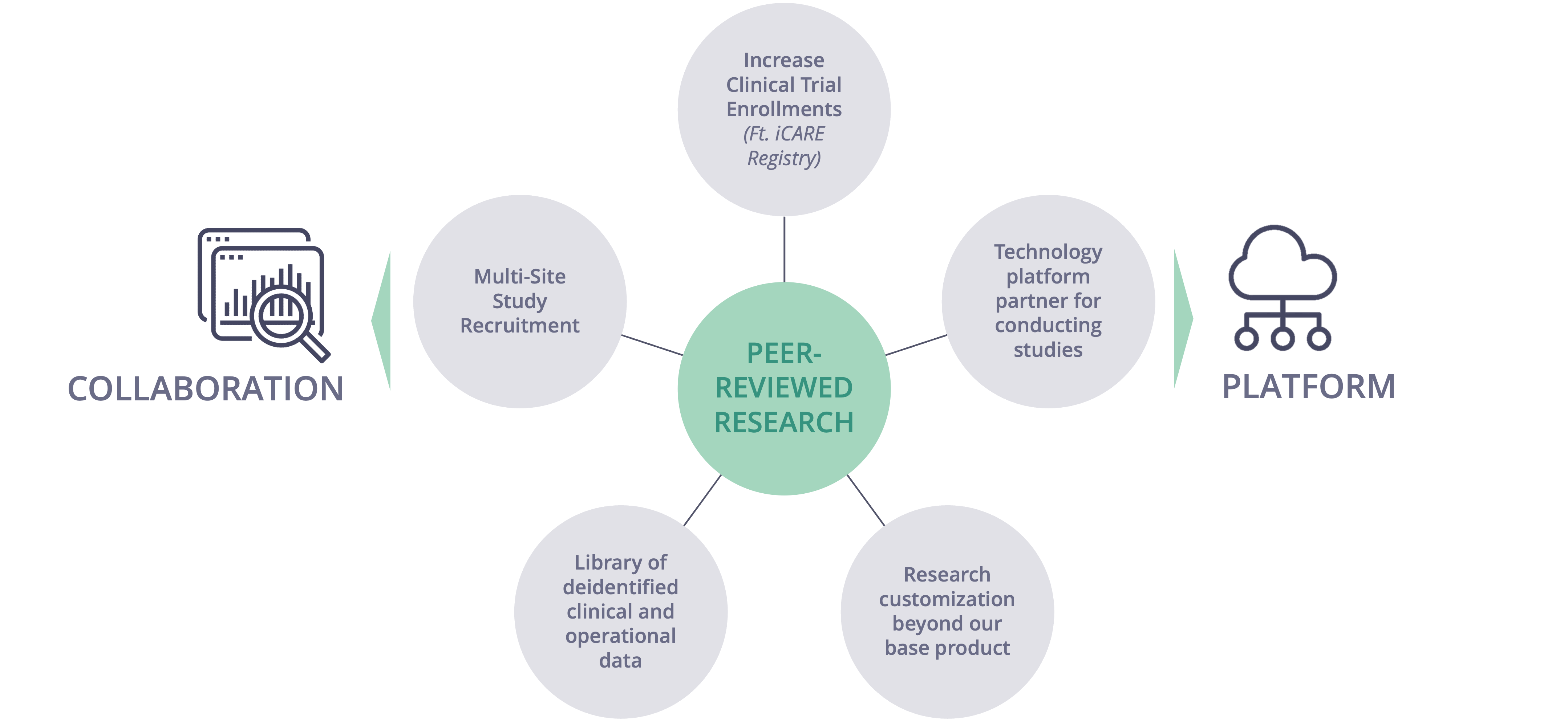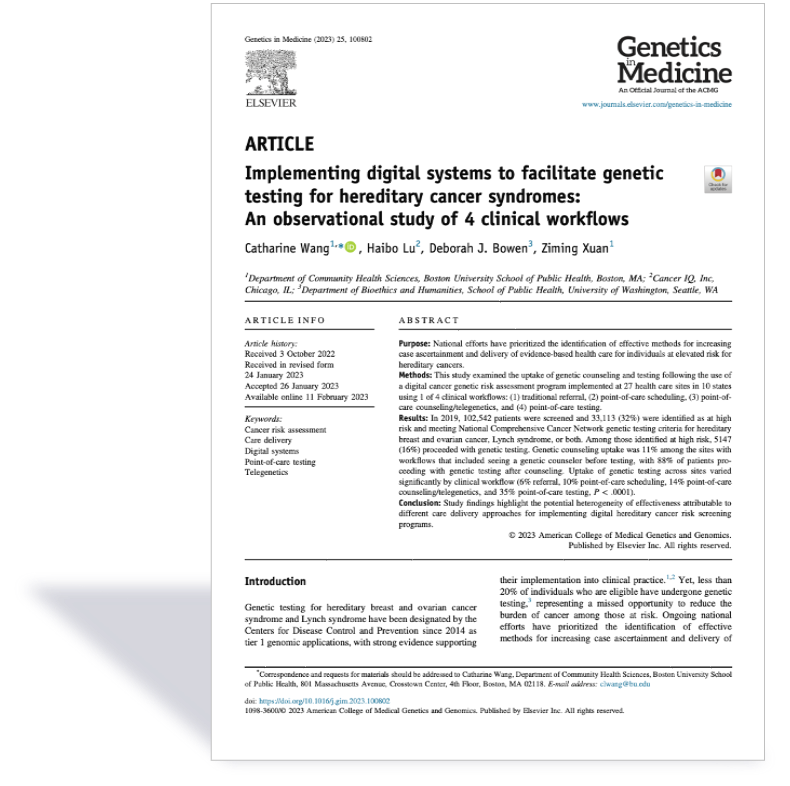
HOW WE WORK WITH PARTNERS
Our approaches to research
COLLABORATION
- Deidentified data sharing
- Clinical data
- Operational data
- Multi-site study recruitment
- Patient identification for research interventions
- Care Plan Research to increase clinical trial Enrollments (Ft. iCARE Registry)
- Multi-Side Study Recruitment with sites across the country with diverse patient populations
- Library of deidentified clinical and operational data to develop solutions targeted towards improving uptake of high risk interventions
TECHNOLOGY
- Technology platform partner for conducting studies
- Use CancerIQ to identify patients at high-risk of: hereditary cancer, lung, colon, cervical, breast, and prostate cancer
- Develop interventions to improve uptake of appropriate preventive services, patient communication, patient education, AI Large Language models
- Research customization beyond our base product
- Custom data collection
- Custom risk models
- Custom eligibility and followup
RESEARCH SPOTLIGHT
Implementation Models Study: Boston University & CancerIQ



Peer-reviewed research shows CancerIQ more than doubles genetic testing uptake
To identify more effective models for cancer genetic testing, a team of researchers from Boston University School of Public Health, CancerIQ, and University of Washington School of Public Health analyzed patient uptake of genetic counseling and testing after conducting digital cancer risk assessment with CancerIQ.
"Clinical workflows that combine point-of-care genetic testing with CancerIQ, the platform powering early cancer detection and prevention across broad patient populations, more than double the average uptake of genetic testing for hereditary cancer syndromes."
— Healthcare Innovation
PUBLICATIONS & PRESENTATIONS
CancerIQ Research Experience
Interested in your own research project?Connect with us to develop a research plan and budget, and learn how we can help. |









